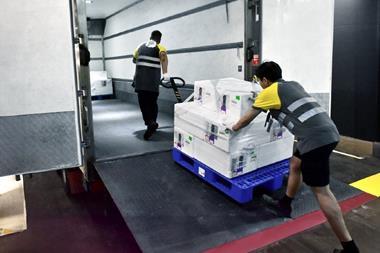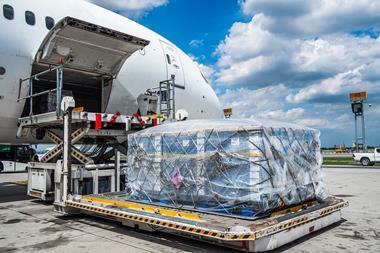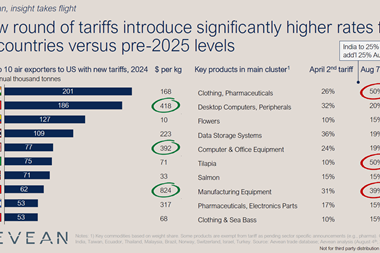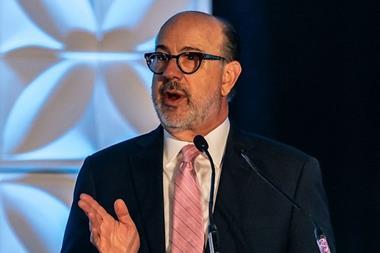The growth of e-commerce may have provided the air cargo industry with a boost but also presents many challenges on the regulatory front.
At the TIACA Air Cargo Forum event in Paris, speakers from the World Customs Organization (WCO) and Tiaca outlined the problems created by shipments coming from unknown shippers.
WCO deputy secretary general Sergio Mujica said: “We believe that e-commerce is a good thing and will make a good contribution to world trade, especially for SMEs.
“Having said so, e-commerce also presents challenges for everyone, but especially Customs. We have identified three areas where further growth is needed and challenges need to be addressed.
“The first one is trade facilitation. E-commerce is all about velocity and effectiveness and we do not want Customs to be an obstacle to that so we need to review our procedures to make sure we are as efficient as e-commerce needs.
“We also need to create the [Customs] capacity to deal with a large amount of small parcels arriving in each country every day.
“The key factor is risk management, we cannot review all the consignments so we need to work and identify where the high risks are and for that data quality is indispensable.”
Revenue collection was another area of concern, with undervaluation of products making it difficult to collect full taxes, while security is another challenge.
“The [recent] bomb in New York was fabricated using items bought via e-commerce so there is a real challenge there,” he added.
Tiaca secretary general Doug Brittin added that e-commerce had created a massive growth in the number of shippers who are not known to authorities.
Data quality was also another challenge created by e-commerce, said Brittin.
“Historically, the air cargo industry has been a shipper, a freight forwarder, an integrator, but now we see through e-commerce the tremendous growth in postal, which flies in aircraft, so we need to work through the issues of information and data quality.”
Mujica said that ICAO and the WCO had set up an e-commerce working group – involving as many stakeholders as possible − to help solve these issues, a move welcomed by Brittin.










